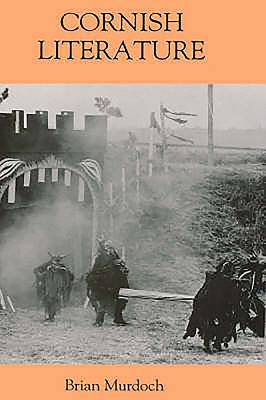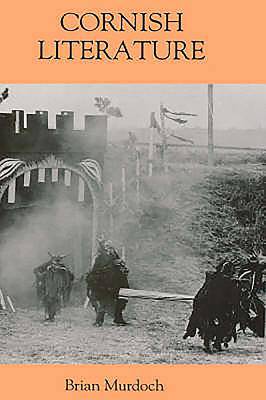
- Afhalen na 1 uur in een winkel met voorraad
- Gratis thuislevering in België vanaf € 30
- Ruim aanbod met 7 miljoen producten
- Afhalen na 1 uur in een winkel met voorraad
- Gratis thuislevering in België vanaf € 30
- Ruim aanbod met 7 miljoen producten
Zoeken
Omschrijving
This work places Cornish literature - the works of the medieval and Reformation periods and the smaller works of late Cornish, and indeed of the recent revival -into a British, Celtic and European literary context. The Cornish works are evaluated and compared with similar texts in a variety of languages, including medieval Latin, English, French, Breton and German. After an introduction to Cornish as such, full chapters are devoted to the poem of the Passion, to the great mystery cycle of the 'Ordinalia', to the very different later Creation drama, and to the impressive and quite wrongly neglected drama of Saint Meriasek, the sole surviving example in Britain of a non-biblical saint play on a large scale. A final chapter looks at the work of the eighteenth-century antiquarians who struggled to find and preserve what scraps they could of a language that they knew to be dying as a vehicle of social intercourse, and then at the literature which has been and which is still being produced by the revivalists. This is the first full-scale presentation of Cornish writings as literature, and it should be of interest in particular to the medievalist-at-large, and especially anyone interested in medieval drama. All quotations are provided with translations. BRIAN MURDOCH is head of the Department of German at Stirling University. In 1989 he was Visiting Fellow of Trinity Hall, Cambridge; he became Litt.D. (Cambridge) in 1992 for publications in modern and medieval Germanic and Celtic languages.
Specificaties
Betrokkenen
- Auteur(s):
- Uitgeverij:
Inhoud
- Aantal bladzijden:
- 184
- Taal:
- Engels
Eigenschappen
- Productcode (EAN):
- 9780859913645
- Verschijningsdatum:
- 11/02/1993
- Uitvoering:
- Hardcover
- Formaat:
- Genaaid
- Afmetingen:
- 156 mm x 234 mm
- Gewicht:
- 439 g

Alleen bij Standaard Boekhandel
+ 354 punten op je klantenkaart van Standaard Boekhandel
Beoordelingen
We publiceren alleen reviews die voldoen aan de voorwaarden voor reviews. Bekijk onze voorwaarden voor reviews.








